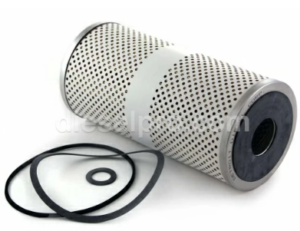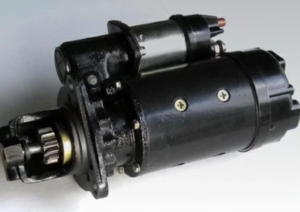
Routine maintenance is the backbone of ensuring the longevity, efficiency, and reliability of Detroit Diesel 53 Series engines. By adhering to a detailed maintenance schedule, operators can prevent wear and tear, reduce the risk of unexpected breakdowns, and maximize the engine’s performance. This comprehensive guide provides insights into critical maintenance tasks, schedules, and tips to keep your engine operating at its best.
Parts Catalog for 353 Detroit Diesel Marine Engine
Parts Catalog for 453 Detroit Diesel Marine Engine
Parts Catalog for 6V53 Detroit Diesel Marine Engine
Parts Catalog for 8V53 Detroit Diesel Marine Engine
Importance of Routine Maintenance
- Enhanced Engine Longevity: Regular care minimizes wear on components, preventing premature failure and extending the operational life of the engine.
- Improved Performance: Engines with properly maintained systems operate at peak efficiency, delivering consistent power and fuel economy.
- Reduced Downtime: Proactive maintenance reduces the likelihood of unplanned repairs or shutdowns, ensuring operational continuity.
- Cost Savings: Preventive maintenance is more cost-effective than major repairs caused by neglect or component failures.
Key Maintenance Tasks and Schedules For Detroit Diesel 53 Series Engines ( 3-53, 4-53, 6V53, 8V53)
1. Oil Changes

Why Oil Changes Are Critical
Engine oil serves multiple roles, including lubrication, cooling, cleaning, and protecting internal components. Over time, oil degrades and becomes contaminated, losing its effectiveness.
Recommended Schedule
- Standard Usage: Change oil every 100-150 operating hours.
- Heavy-Duty or Severe Conditions: Change oil more frequently, as contaminants and thermal breakdown occur faster in harsh environments.
Procedure
- Warm Up the Engine:
- Run the engine for 5-10 minutes to ensure the oil is warm, which helps it flow more easily during draining.
- Drain Old Oil:
- Remove the drain plug and let the oil drain completely into a collection pan.
- Replace the Oil Filter:
- Use a high-quality aftermarket oil filter. Apply a thin film of new oil to the gasket before installation.
- Refill with Fresh Oil:
- Use oil that meets Detroit Diesel specifications (e.g., SAE 15W-40). Fill to the recommended level on the dipstick.
- Check for Leaks:
- Start the engine and inspect for leaks around the drain plug and filter housing.
- Start the engine and inspect for leaks around the drain plug and filter housing.
2. Coolant System Maintenance

Why Coolant Checks Are Necessary
The cooling system regulates engine temperature, preventing overheating and thermal stress. Inadequate coolant levels or degraded coolant can cause severe damage to the cylinder head, gaskets, and other components.
Recommended Schedule
- Inspect coolant levels daily before engine operation.
- Replace coolant every 1,000 operating hours or annually.
Procedure
- Check Coolant Level:
- Ensure the coolant is at the appropriate level in the reservoir or radiator. Top off with a 50/50 mix of coolant and distilled water if necessary.
- Ensure the coolant is at the appropriate level in the reservoir or radiator. Top off with a 50/50 mix of coolant and distilled water if necessary.
- Inspect for Leaks:
- Check hoses, connections, and the radiator for visible leaks or damage.
- Check hoses, connections, and the radiator for visible leaks or damage.
- Flush and Refill System:
- Drain the old coolant and flush the system using a cleaning solution to remove deposits. Refill with a high-quality coolant meeting Detroit Diesel specifications.
- Drain the old coolant and flush the system using a cleaning solution to remove deposits. Refill with a high-quality coolant meeting Detroit Diesel specifications.
- Test the System:
- After refilling, run the engine and monitor the temperature gauge to ensure proper circulation.
- After refilling, run the engine and monitor the temperature gauge to ensure proper circulation.
3. Fuel Filter Replacements

Why It’s Essential
Fuel filters remove contaminants from the diesel fuel, protecting injectors and other critical components. Clogged filters can restrict fuel flow, reduce performance, and cause starting issues.
Recommended Schedule
- Inspect fuel filters every 100 operating hours.
- Replace primary and secondary fuel filters every 300 operating hours or sooner if clogged.
Procedure
- Relieve Pressure in the Fuel System:
- Shut off the engine and open the fuel filter bleed valve to release pressure.
- Shut off the engine and open the fuel filter bleed valve to release pressure.
- Remove Old Filters:
- Use a filter wrench to remove the primary and secondary fuel filters. Dispose of used filters properly.
- Use a filter wrench to remove the primary and secondary fuel filters. Dispose of used filters properly.
- Install New Filters:
- Fill the new filters with clean diesel fuel to reduce priming time. Install and tighten them securely.
- Fill the new filters with clean diesel fuel to reduce priming time. Install and tighten them securely.
- Bleed Air from the System:
- Open the bleed screw and crank the engine to purge air from the fuel lines. Close the screw once a steady flow of fuel is observed.
- Open the bleed screw and crank the engine to purge air from the fuel lines. Close the screw once a steady flow of fuel is observed.
4. Air Intake System Maintenance

Why Clean Air Is Important
The air intake system ensures adequate airflow for combustion. A clogged air filter restricts airflow, leading to incomplete combustion, reduced power, and increased emissions.
Recommended Schedule
- Check the air filter every 250 operating hours or more frequently in dusty environments.
- Replace the air filter when the restriction indicator signals excessive resistance.
Procedure
- Inspect the Air Filter:
- Remove the air filter and check for dirt, oil, or visible damage.
- Clean or Replace:
- If the filter is reusable, clean it with compressed air (blow from the inside out). If it is disposable or heavily soiled, replace it.
- Check Intake Ducts:
- Inspect ducts for obstructions or leaks and ensure a tight seal.
- Inspect ducts for obstructions or leaks and ensure a tight seal.
5. Belt and Pulley Inspections
Why It’s Necessary
Belts drive critical components such as the alternator, water pump, and fan. A worn or loose belt can lead to overheating, electrical failure, or engine shutdown.
Recommended Schedule
- Inspect belts and pulleys every 100 operating hours.
Procedure
- Visual Inspection:
- Look for cracks, fraying, or glazing on belts. Check pulleys for alignment and wear.
- Adjust Tension:
- Press on the belt midway between pulleys. Proper tension allows for ½ inch of deflection. Adjust tension using the tensioner or mounting bolts.
- Replace Worn Belts:
- If a belt shows significant wear, replace it with a high-quality aftermarket belt.
- If a belt shows significant wear, replace it with a high-quality aftermarket belt.
6. Battery and Electrical System Maintenance

Why It’s Essential
The electrical system powers the engine starter, fuel injectors, and other components. Weak batteries or poor connections can cause starting issues and unreliable performance.
Recommended Schedule
- Inspect the battery and connections every 50 operating hours.
Procedure
- Check Battery Charge:
- Use a multimeter to ensure the battery voltage is within the recommended range (typically 12.4-12.7 volts for a charged battery).
- Clean Terminals:
- Remove corrosion from battery terminals using a wire brush and apply a protective terminal spray.
- Inspect Wiring:
- Check for frayed wires or loose connections and repair as needed.
- Check for frayed wires or loose connections and repair as needed.
7. Exhaust System Inspection

Why It’s Necessary
A well-maintained exhaust system ensures the safe expulsion of gases and prevents backpressure, which can hinder engine performance.
Recommended Schedule
- Inspect the exhaust system every 500 operating hours.
Procedure
- Inspect Components:
- Examine the exhaust manifold, gaskets, and muffler for leaks or cracks.
- Remove Carbon Deposits:
- Clean buildup from the exhaust ports and manifold to maintain efficiency.
- Clean buildup from the exhaust ports and manifold to maintain efficiency.
Additional Maintenance Tips For Detroit Diesel 53 Series Engines (3-53, 4-53, 6V53, 8V53)
- Log Maintenance Activities:
- Keep a detailed record of maintenance dates, tasks completed, and any components replaced. This helps track wear trends and ensures adherence to schedules.
- Keep a detailed record of maintenance dates, tasks completed, and any components replaced. This helps track wear trends and ensures adherence to schedules.
- Use High-Quality Aftermarket Parts:
- Replace worn components with reliable aftermarket parts, such as those offered by Diesel Pro Power.
- Replace worn components with reliable aftermarket parts, such as those offered by Diesel Pro Power.
- Monitor Engine Parameters:
- Continuously monitor oil pressure, coolant temperature, and fuel consumption for early signs of potential issues.
- Continuously monitor oil pressure, coolant temperature, and fuel consumption for early signs of potential issues.
- Stay Proactive:
- If unusual noises, smoke, or vibrations are detected, address them immediately to prevent further damage.
- If unusual noises, smoke, or vibrations are detected, address them immediately to prevent further damage.
By following a comprehensive routine maintenance schedule, Detroit Diesel 53 Series engines can operate reliably and efficiently for thousands of hours. Proper care not only ensures peak performance but also prevents costly repairs and extends the engine’s lifespan.
Parts Catalog for 353 Detroit Diesel Marine Engine
Parts Catalog for 453 Detroit Diesel Marine Engine
Parts Catalog for 6V53 Detroit Diesel Marine Engine
Parts Catalog for 8V53 Detroit Diesel Marine Engine



 Free US Calls: 1-888-433-4735
Free US Calls: 1-888-433-4735 International: 305-545-5588
International: 305-545-5588
Dear dieselpro.com owner, Excellent work!